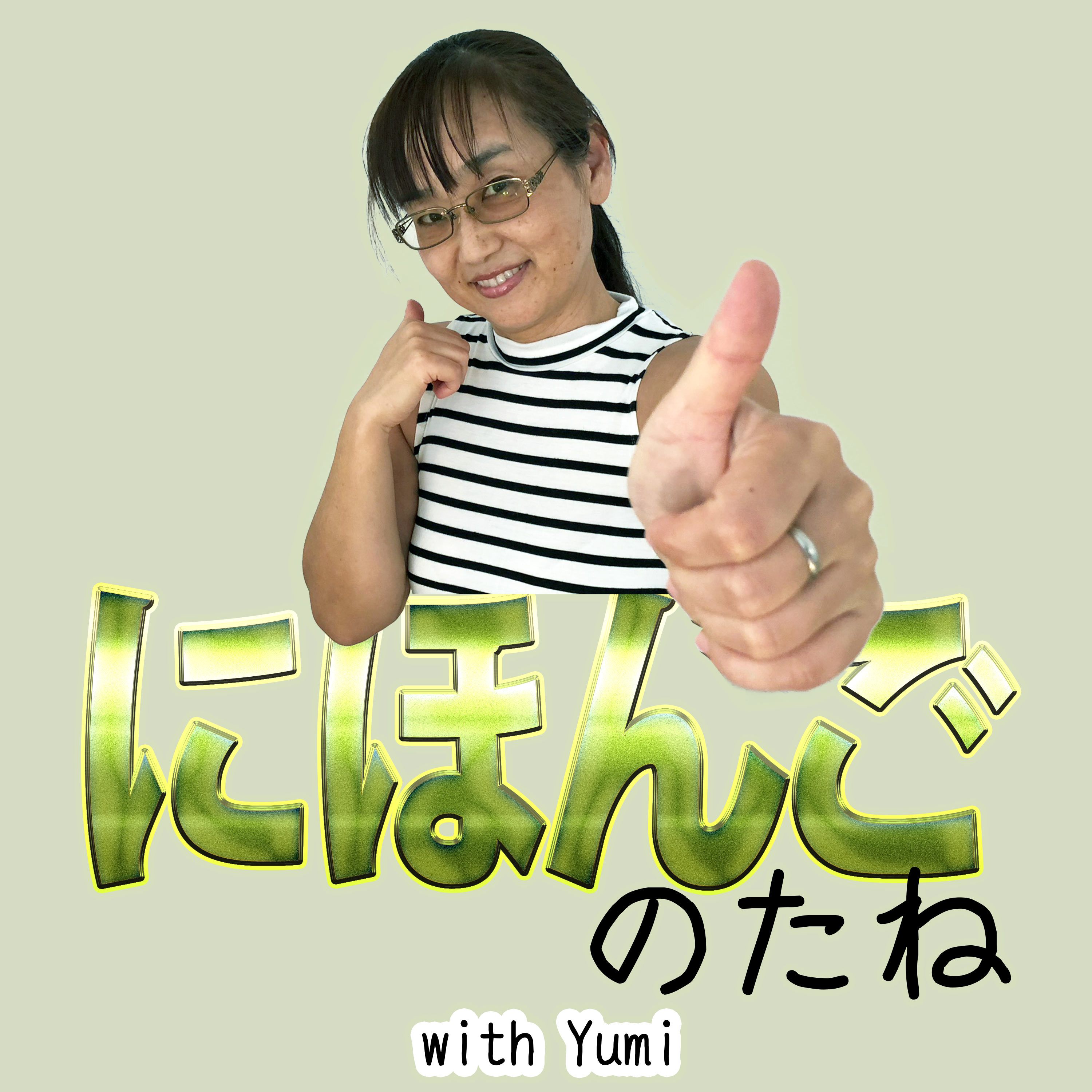 |
Nihongo no Tane with YumiAuthor: TheJapanesePage.com
A weekly podcast for upper beginner to intermediate learners of Japanese. Listen to Yumi talk about... whatever she wants to talk about. Practice your listening comprehension with natural (howbeit slightly slowed down) Japanese on various topics such as Japanese culture, fun idioms, and, of course, cats. The episodes can be enjoyed in any order. -- Become a Makoto member and get show notes with a complete transcript and a list of key vocabulary. www.MakotoPlus.com Language: en Genres: Education, Language Learning Contact email: Get it Feed URL: Get it iTunes ID: Get it |
Listen Now...
Nihongo no Tane 173: 娘のミュージカル2 My Daughter’s Musical 2 | Japanese Immersion podcast
Episode 173
Monday, 29 December, 2025
In this episode, Yumi shares the inspiring story of how her daughter landed the lead role in a local musical production of Percy Jackson—a role she wasn’t even aiming for. Originally cast in a small part, her passion for the story, dedication to rehearsal, and deep knowledge of the material made her stand out. Yumi reflects on what people often call “luck” and reveals the real reason behind unexpected success: enthusiasm and consistent effort. Whether it’s theater or language learning, this episode is a reminder that passion often leads the way. A motivational listen for anyone chasing a dream—or studying Japanese. 🎭📚🇯🇵 KEY VOCABULARY: 端役(はやく) — “Minor role” or “bit part.” 端 means “edge” or “marginal,” and 役 means “role” or “part.” Together, this refers to a small or supporting role in a play or production. チョイ役(やく) — “Bit part” or “cameo role.” チョイ is a casual way of saying “just a little,” and 役(やく) means “role.” This term is used for a very minor or brief appearance in a performance. 情熱(じょうねつ) — “Passion” or “enthusiasm.” 情 means “emotion” or “feeling,” and 熱 means “heat” or “fervor.” Together, they express strong emotional commitment. 全(ぜん)シリーズ — “The whole series.” 全(ぜん) means “all” or “entire,” and シリーズ (series) refers to a set of works like books or episodes. Together, it means “every part of the series.” ほぼ — “Almost” or “nearly.” An adverb meaning something is close to being complete or true. 出演者全員(しゅつえんしゃぜんいん) — “All cast members.” 出演者(しゅつえんしゃ) means “cast” or “performers,” and 全員(ぜんいん) means “everyone” or “all members.” 何(なに)かにつけて — “On every occasion” or “at every opportunity.” Used to express that something happens habitually or regularly, no matter the situation. 態度(たいど) — “Attitude” or “behavior.” Refers to a person’s manner or way of acting, especially how it reflects effort or character. ディレクターとして — “As a director.” ディレクター means “director,” and として indicates the capacity or role in which someone acts. しかも — “Moreover” or “on top of that.” An adverb used to add additional, often impressive or unexpected, information. せっかちなのもあるせいか — “Maybe because I’m a bit impatient.” せっかち means “impatient,” and せいか implies a possible reason or cause, used when speculating. 映(うつ)ったよう — “Seemed to appear (a certain way).” 映(うつ)る means “to appear” or “be reflected,” and よう adds a nuance of perception or impression. For upper beginners to intermediates. Listen to the short podcast and then answer the comprehension questions on the website: https://thejapanesepage.com/nihongonotane-index/ Take a quiz on this episode here: https://thejapanesepage.com/podcast-nihongonotane-173 If you are a Makoto+ member, you can find the transcript, English translation, key vocabulary, and a downloadable PDF for printing: https://MakotoPlus.com/podcast-nihongonotane-173-m -- Become a Makoto+ member and get show notes with a complete transcript, translation, key vocabulary, and a downloadable PDF. www.MakotoPlus.com











